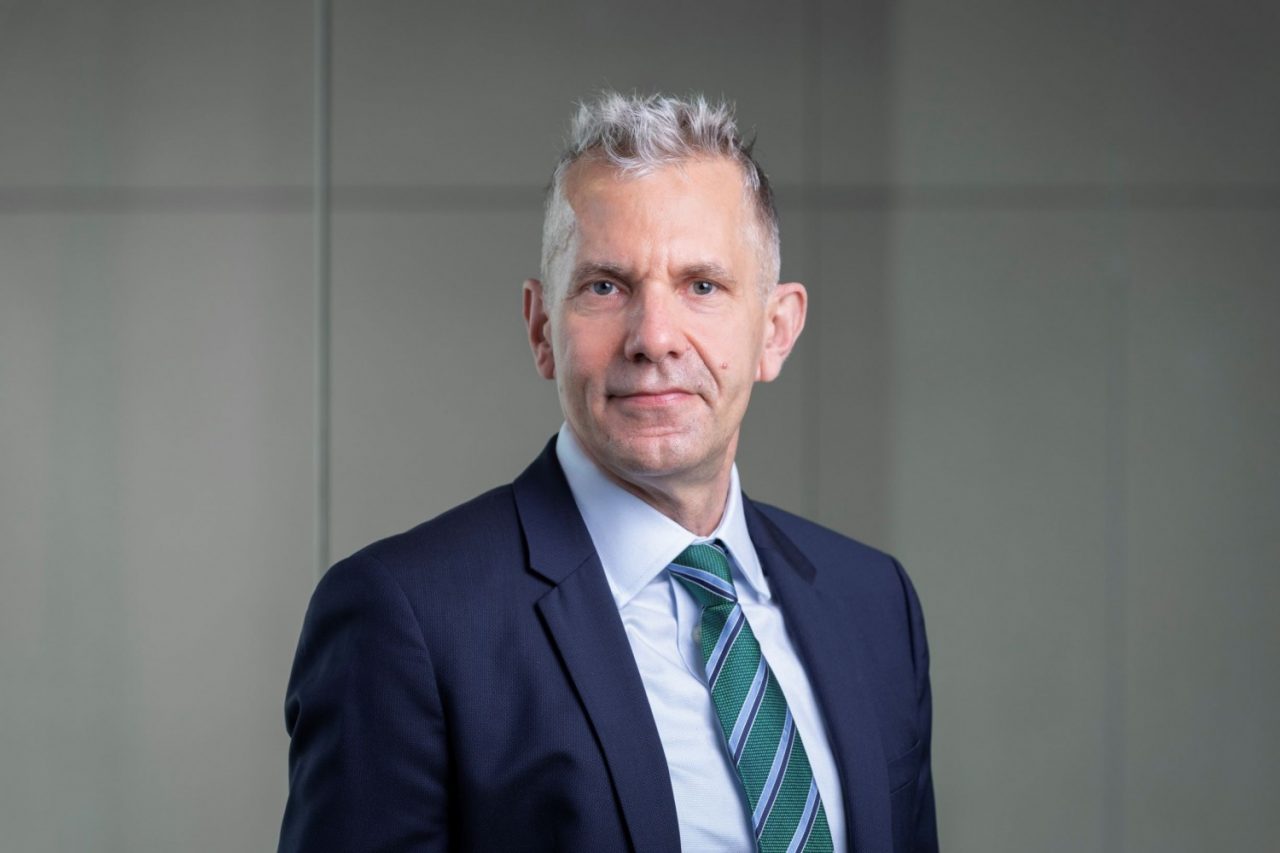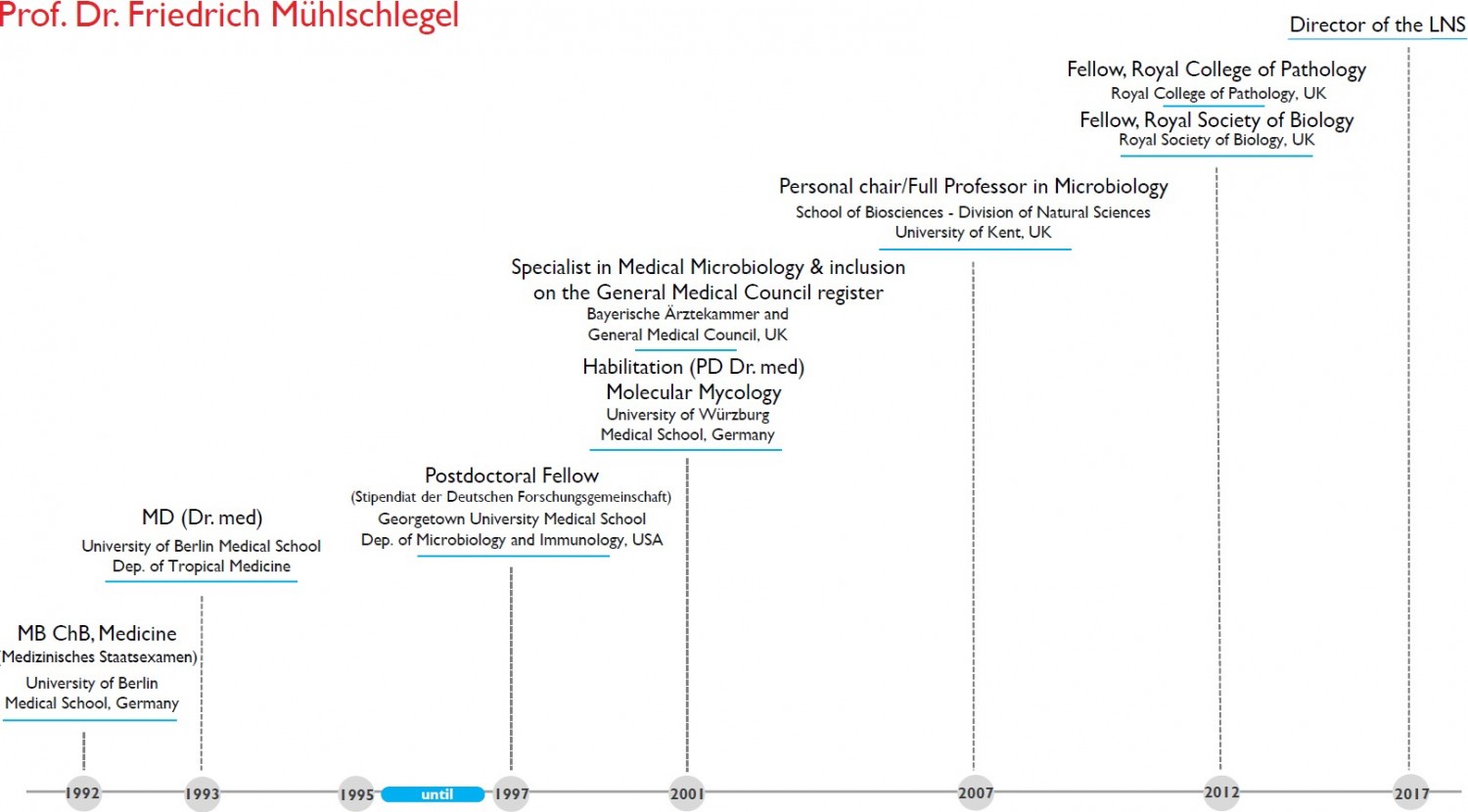

„A lot of what is happening right now – not only in medicine – is caused by humans and can thus be positively influenced”
Professor Dr. Friedrich Mühlschlegel
COVID-19 was indeed unprecedented. At the very beginning of 2020, no one had the virus seriously on their radar. However, that changed very quickly in the second half of January. That was when we started to get the first signs that something of a storm was brewing. We then immediately started to take the necessary preparatory measures. We worked with all relevant players in the country and exchanged information with experts worldwide. In addition, we set up a crisis team to ensure that everything proceeded in an orderly manner from the outset, and in as structured a manner as possible within the LNS as a whole. « As possible » means: We didn’t know the details of what we would be facing, much of it was assumption. The fact that, from today its perspective, we still performed as a center of excellence for the country and its people, and became a cross-border contact point for questions about COVID-19, is due to the expertise of each individual, coming together as a team during the crisis and was further strengthened through our COVID-19 Fighters campaign. It shows that we indeed can “do difficult”. Our value system Together LNS, beeing a corner stone of our everyday life since 2019, continued to chaperone how we come together as a team. We came into the crisis as a strong organization, but thanks to Together LNS, we have come out even stronger.
The world is in constant evolution – always. We, who work as health experts close to people its realities, translating research into practical therapies as it were, know this very well. The term « New Normal » therefore sums it up very aptly: there will be normal life – although one has to ask what « normal » actually entails. Whatever that answer may be, things will be different from how they were before 2020. Numerous factors play a role in this, and many things are conceivable. The pandemic could become a permanent epidemic. New pandemics cannot be ruled out for sure. Other diseases could emerge. As a microbiologist, and as a human being, I see decisive times ahead for the profession and individuals in general – and a great deal of responsibility borne by each individual and by society as a whole. A lot of what is happening right now – not only in medicine – is caused by humans and can thus be positively influenced. This is also a challenge for us as LNS.
We not only proved ourselves as formidable crisis managers during what I would describe as “the real stress-test”, but also continued to develop our other activities in parallel. Existing initiatives were further consolidated, new ones developed, and our Health Protection colleagues even launched a completely new unit. We continued along this path of excellence during the summer and will continue to do so consistently. At the same time, however, it is also important to us that each of us can take a breather now and then. The eye-catching principle of « Work smarter, not harder » is more than just a slogan for us but a motto to live by, reflected in Together LNS.
Being the leader of the LNS is a real privilege for me and of course, was a very special challenge for me from day one. My goal was to take an established and efficiently operating player forward and to set new benchmarks in the process. To this end, we selectively expanded our team and thus our expertise in breadth and depth. In addition, we further expanded our international contacts. All this also helped us in the COVID-19 crisis, in which I believe the LNS received a significant boost with regards to how others perceive us. We are recognized as an efficient, reliable team player that « can handle tough situations » and will not shy away from tackling problems also from an unconventional perspective. Partners, as well as people in Luxembourg and the greater region, see us as the backbone of the health system. This has not changed me as a person, but it makes me proud and deeply happy. I believe that each of us can be proud of what we do every day. And if this is the case, then in my opinion it is also an essential step in the LNS’ development.
Our appointment as an official HERA project partner is a truly beautiful appreciation of our work and a driving force with regards to our shared ambition as a team of experts. One of HERA’s key concerns is to strengthen the detection of COVID-19 variants and knowledge on how they are developing and spreading. Therefore, major investments have been made to identify and characterize these variants using whole-genome sequencing (WGS) and Reverse Transcription Polymerase Chain Reaction (RT-PCR). The WGS capacity has been expanded to 2.500 samples per week. In order to sustainably control the epidemiological situation in Luxembourg and at the EU/EEA level, the LNS will furthermore expand its bio banking capacity as well as the automation of workflows and establish higher sequencing capacities at the national level, combined with enhanced data reporting for integrated genomic and epidemiologic analysis.The LNS is also participating in the development of regional data hubs to facilitate the timely reporting of WGS and RT-PCR data to the European Center for Disease Prevention and Control (ECDC). Being part of the HERA program will help us and our European partners to transform evidence from the COVID-19 pandemic to a public health laboratory response model for future sanitarian crises.
As I said, we are on a path of excellence, and such a path is always long, in fact, it is endless. This is good news because it means that each and every one of us can continue to develop, so the LNS can continue to improve. I see my main task as inspiring and coordinating this journey. It is also important to me that each team member be given the freedom and responsibility that an organization needs in order to create excellence together. No doubt, Microbiology will play a key role in the coming years, but other departments will be called on too. I see the COVID-19 pandemic as a kind of blueprint for other possible scenarios in the future. To deal with it, microbiological responses were needed first. However, all our other departments and centers also played their part in ensuring that the country and its people came out of the crisis in good shape – and that the LNS came out stronger. We will continue to work together without “stakeholders” to ensure that we will be even better positioned to deal with the next crisis.

I love being with family, and I am passionate about music, art, literature, sports, debating, languages, nature, and any numerous other things.
Besides, I am in awe of the fantastic things done and initiated by inspired individuals such as LNS staff.